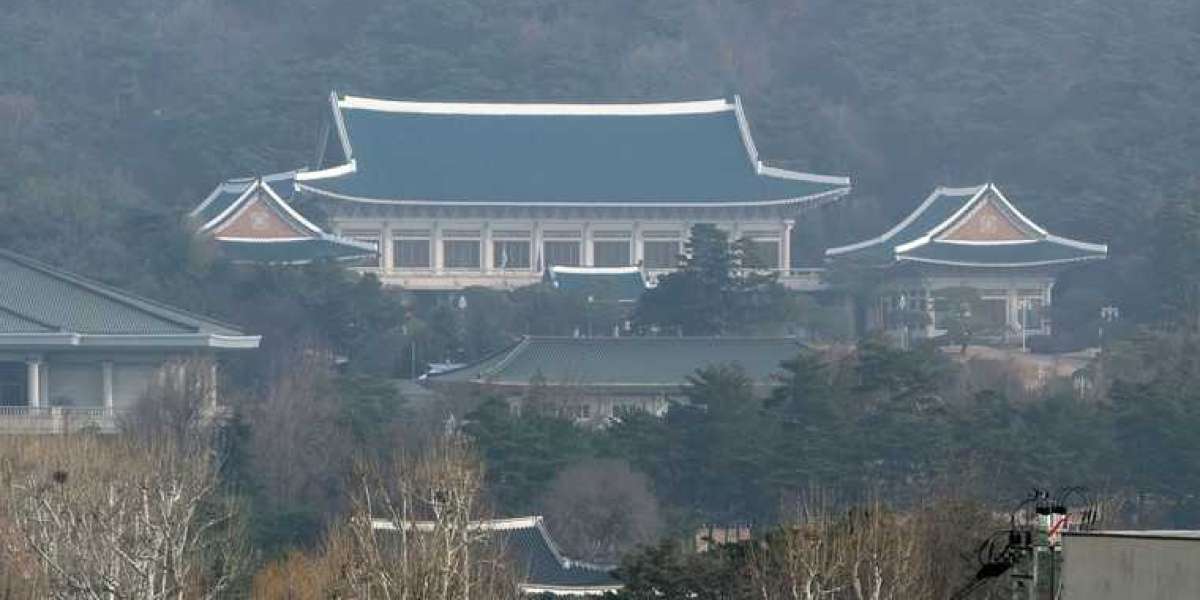In order to expedite his plan to re-locate the presidential office, President-elect Yoon Suk-yeol is putting forth significant effort, with transition committee officials now stating that there is no chance he will remain in the current Cheong Wa Dae, also known as the Blue House because of its iconic blue-tiled roof.
Beginning with his presidential campaign, Yoon has stated that relocating the presidential office will allow for "greater connection" with the general people. Yoon views Cheong Wa Dae as being locked off from the general public and symbolizing emperor-like presidential power.
In addition to the Defense Ministry complex in Yongsan-gu, Seoul, a number of other sites are being evaluated as potential presidential office locations, with the Defense Ministry compound in Yongsan-gu emerging as a serious contender. However, no matter where it is implemented, the proposal is generating concerns about its practicality due to the numerous obstacles that must be overcome in terms of security, cost, and traffic efficiency.
President's safety is a top priority.
The president's safety has been identified as one of the most pressing issues. The Seoul Government Complex, located in the central Gwanghwamun district, not far from Cheong Wa Dae, was the site of Yoon's first announcement that he would relocate his presidential office.
In the meanwhile, the president-elect has turned to the Defense Ministry complex in Yongsan-gu, near Seoul's Samgakji Station, as a possible solution to the problem of a shortage of security facilities to safeguard the president.
The Defense Ministry complex, which is itself a security facility, is supposed to provide a solution to the problem of the president's protection. According to Yoon's advisers, the compound already has protective measures in place, such as subterranean bunkers.
The facility also features helicopter takeoff and landing zones that are ready for use in the event of a helicopter emergency.
While North Korea continues to launch provocative missiles from time to time, the question of whether it is feasible for South Korea to transfer all of Cheong Wa Dae's security features in order to facilitate Yoon's move remains a big topic that needs to be addressed.
Cheong Wa Dae features an underground bunker that is fully furnished with the latest in security and intelligence technology. In this bunker, during times of national emergency, the National Security Council holds its sessions.
Following the implementation of the relocation plan, the president would either have to go to Cheong Wa Dae from the Defense Ministry property in order to attend an NSC meeting, or he would have to hold the meeting within an underground bunker connected to the Joint Chiefs of Staff headquarters.
In a recent interview, former Justice Party lawmaker Kim Jong-dae expressed his concern that the underground bunker within the Joint Chiefs of Staff headquarters in the Defense Ministry compound is insufficiently large to accommodate the president and all related figures for a National Security Council meeting.
"Do they intend to evacuate all of the soldiers in the event of an emergency?" "Do they intend to convene the National Security Council meeting with everyone standing?" Kim made the announcement on his Facebook page on Wednesday.
On Thursday, the ruling Democratic Party of Korea issued a statement in which it described Yoon Suk-campaign yeol's for relocation as "hurried and impellent," as well as a threat to national security.
It is "preposterous" to move the presidential office in such a hasty manner just two months before the inauguration, according to the ruling party lawmakers affiliated with the parliamentary committee for National Defense. "Not only will it create many side effects and unnecessary chaos when they move the presidential office inside the Defense Ministry compound," the lawmakers from the ruling party said in a statement.
Inconvenience and additional expense
The expense of relocation has also been a source of contention among those opposed to it. Only the prospects for relocation expenses have been given forth, but it is anticipated that it would cost hundreds of billions of won to relocate the entire company.
The Ministry of the Interior and Safety has informed Yoon's presidential transition committee that the relocation of the presidential office to the Defense Ministry compound in Yongsan will cost around 50 billion won ($41 million). Apparently, it would cost over 100 billion won to relocate the office to Seoul Government Complex in order to take over the Foreign Ministry's former location in downtown Gwanghwamun.
On Thursday, an online presidential petition was launched in opposition to Yoon's plan, claiming that it was "a waste of a significant amount of public dollars."
A petitioner on the presidential petition site operated by the government claimed that President-elect Yoon Suk-yeol was talking about establishing a new presidential office solely for his own satisfaction, as well as forcing the relocation of security facilities and systems of the Defense Ministry that had been optimized for national security.
In the United States, the presidential term is limited to five years. It is impossible for the Korean people to accept Yoon's impellent demand to take over the Defense Ministry's complex for the duration of his five-year presidency, as well as to spend tens of thousands of won to waste the valuable funds of the taxpayers."
There is also the issue of severe traffic congestion, as the presidential home would be relocated as well, although not within walking distance of the new location.
As reported by Yoon's transition team, several options for the presidential residence are being considered. These include official residences of government ministries, military headquarters, and air chiefs of staff. Another option is to construct a new residence in close proximity to the current one.
The traffic infrastructure in the area where the new presidential office would be located would have to be adjusted as a result of this since the roads would have to be cleared every time the president commuted to his office from his house or traveled to another location.
Is relocating the best solution?
Mr. Yoon is convinced that his plan to relocate the presidential office is intended to improve engagement with the general population, and he depicts Cheong Wa Dae as a "isolated royal castle" in his statement.
In truth, Yoon is not the first person to attempt to shift the presidential office from Cheong Wa Dae to a different location.
As part of his 2012 presidential campaign, incumbent President Moon Jae-in committed to relocate the presidential office to Gwanghwamun, "eradicate the authoritarian presidential culture," and "open the Gwanghwamun era."
As soon as Moon was elected to his first term in office in 2017, the administration moved quickly to forward the topic, even establishing a presidential committee dedicated to the relocation project.
However, after a year and a half of evaluation, the administration was forced to give up after discovering that they were unable to locate appropriate room for other related facilities, such as a receiving hall to host VIPs from overseas, the headquarters, and heliports locations in the area.
There are still disagreements on whether relocating the presidential office to the Defense Ministry or other locations is the best approach to bring the president and the public closer together in the long run.
When considering the Defense Ministry compound, the Joint Chiefs of Staff offices, and other military facilities, it is worth noting that these facilities would stay in place even if portions of the Defense Ministry offices were transferred to other locations.
As a result, the proposed presidential office within the Defense Ministry property would continue to be deemed a military installation, with civilians being barred from accessing.
The fact that Yoon has insisted that his inauguration ceremony will take place at a new presidential office on May 10 rather than at Cheong Wa Dae has sparked speculation that the strong motivation behind the apparent haste to relocate is based on Yoon's belief in feng shui, or the geomantic evaluation of the land on which Cheong Wa Dae is located, rather than on any other factor.
According to the appearances, the feng shui rating of the Cheong Wa Dae site is disputed. And the belief that the location is cursed has reappeared from time to time, since prior presidents have all met with unfortunate outcomes, including impeachment, corruption prosecutions, and other legal troubles.



